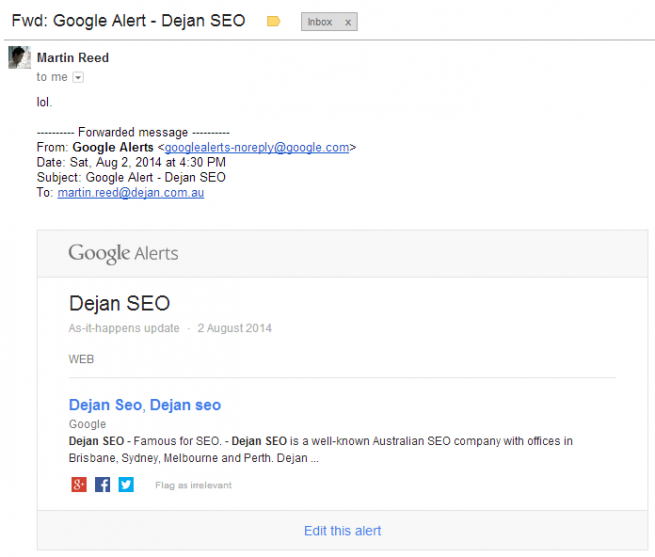Jim Munro spotted an interesting anomaly in Google’s search results the other day, a case of Google indexing its own search results. This is not something you see every day. I went to investigate and noticed that all Google’s URLs returned in this search query had one thing in common – //.
The next logical thing was to structure my own query and see if I can get it indexed. I linked it from two places, one of them being a Google+ post:
Note: Google has a tendency of penalising my experiment pages so I won’t be revealing the other link in this post.
This morning Martin forwarded me a Google Alert which made me chuckle:

So now I know that Google’s search results are now indexed, cached and can trigger alerts. What’s interesting is that Google frowns upon this sort of website behaviour, particularly when webmasters of large online stores allow indexing of search results which is typically seen as thin content. From Matt Cutts:
“Google does reserve the right to take action to reduce search results (and proxied copies of websites) in our own search results.”
I guess this little anomaly shows that things like this can happen to anyone, even to Google. Hopefully automated search quality mechanisms such as Panda have a way of dealing with isolated instances of poor quality signals on otherwise high quality websites.
Dan Petrovic, the managing director of DEJAN, is Australia’s best-known name in the field of search engine optimisation. Dan is a web author, innovator and a highly regarded search industry event speaker.
ORCID iD: https://orcid.org/0000-0002-6886-3211
